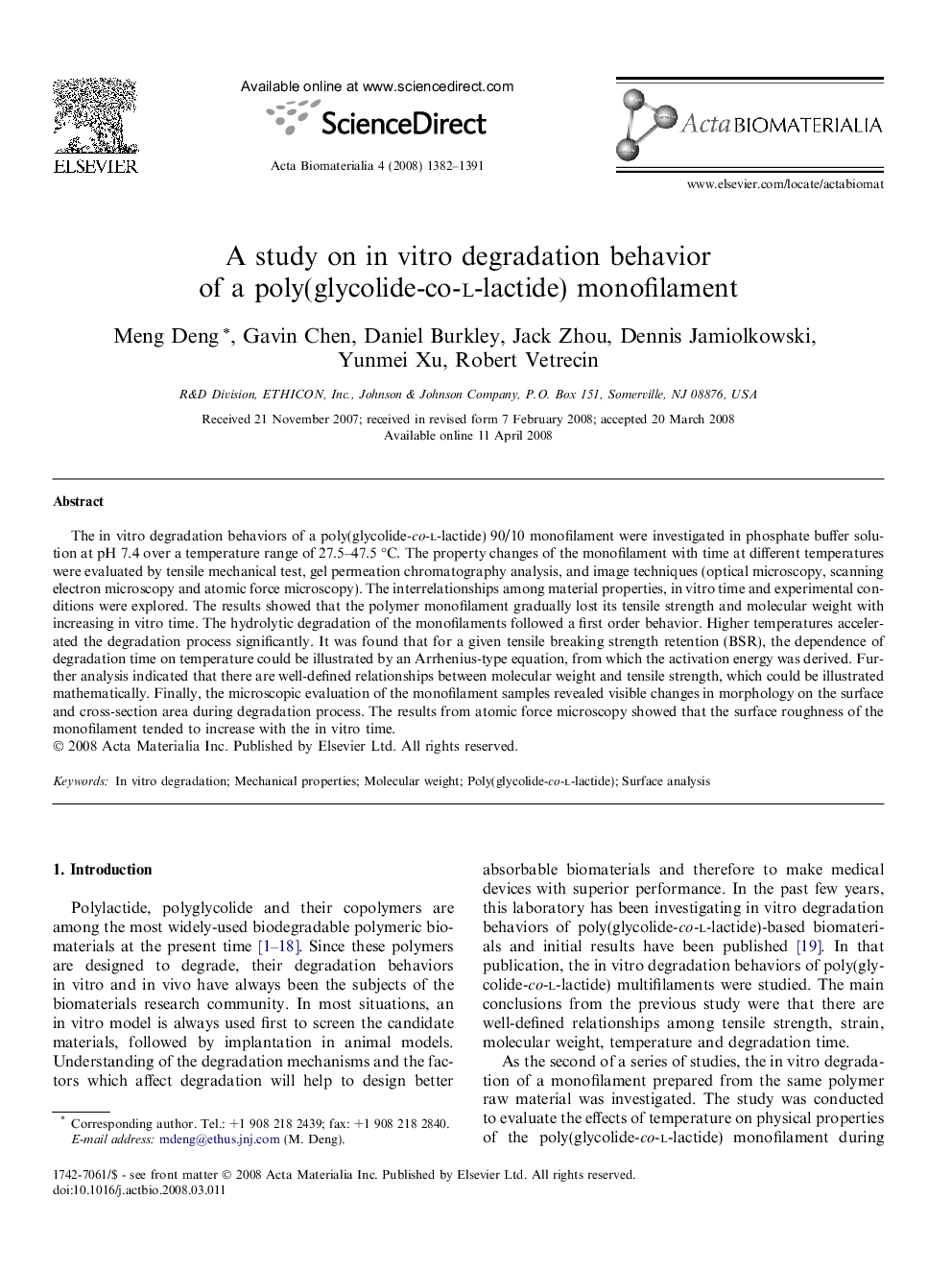| Article ID | Journal | Published Year | Pages | File Type |
|---|---|---|---|---|
| 1570 | Acta Biomaterialia | 2008 | 10 Pages |
The in vitro degradation behaviors of a poly(glycolide-co-l-lactide) 90/10 monofilament were investigated in phosphate buffer solution at pH 7.4 over a temperature range of 27.5–47.5 °C. The property changes of the monofilament with time at different temperatures were evaluated by tensile mechanical test, gel permeation chromatography analysis, and image techniques (optical microscopy, scanning electron microscopy and atomic force microscopy). The interrelationships among material properties, in vitro time and experimental conditions were explored. The results showed that the polymer monofilament gradually lost its tensile strength and molecular weight with increasing in vitro time. The hydrolytic degradation of the monofilaments followed a first order behavior. Higher temperatures accelerated the degradation process significantly. It was found that for a given tensile breaking strength retention (BSR), the dependence of degradation time on temperature could be illustrated by an Arrhenius-type equation, from which the activation energy was derived. Further analysis indicated that there are well-defined relationships between molecular weight and tensile strength, which could be illustrated mathematically. Finally, the microscopic evaluation of the monofilament samples revealed visible changes in morphology on the surface and cross-section area during degradation process. The results from atomic force microscopy showed that the surface roughness of the monofilament tended to increase with the in vitro time.
